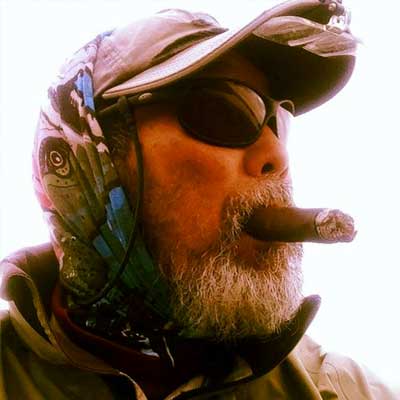Access Denied
IMPORTANT! If you’re a store owner, please make sure you have Customer accounts enabled in your Store Admin, as you have customer based locks set up with EasyLockdown app. Enable Customer Accounts

BACK TO FLY DESIGNERS
FLY DESIGNER
Leland Miyawaki
In 1968, Leland's journey into the world of fly fishing commenced with a bold move: he ordered a complete fly fishing kit from LL Bean and a beginner's fly-tying set from Orvis. As the new rod and reel arrived, he bid farewell to his spinning rod, forever embracing the allure of fly fishing. Self-taught in casting and fly tying, he embarked on a quest to master the art.
Exactly one year after this pivotal decision, Leland's dedication bore fruit as he caught a small brook trout on a fly of his creation. From that moment forward, he immersed himself in fly fishing, exploring numerous waterways across California, Oregon, Idaho, and Washington and venturing into renowned fishing spots in New Mexico, Wyoming, Montana, and even the steelhead-rich rivers of British Columbia. Amidst these journeys, he also uncovered a well-kept secret river in Idaho.
In 1978, while fishing for coho salmon on a Puget Sound beach, Leland observed both salmon and gulls feeding on crippled baitfish at the water's surface. This observation sparked the creation of his first "beach popper," which, although more accurately described as a slider, earned its name. At the time, using surface flies for coho and sea-run cutthroat was unconventional, but Leland's innovative approach ignited a new way of angling.
When the waters of summer steelhead in the western United States recede to low flows during late summer and fall, seasoned fly fishers switch to small low-water patterns. Recognizing this trend, Leland developed his "Fat Flies," designed specifically for these conditions. These flies adhere to the traditional Pacific Northwest dressing but are tied on a larger 2/0 bait hook. Casting a size 10 Freight Train or Green Butt Skunk on such a substantial short hook is a unique experience that yields exceptional results, particularly when targeting "hang-down fish."
Leland's fly patterns are distinguished by their non-traditional nature, demanding believers to appreciate their effectiveness. To master the art of fishing these flies is to embrace their uniqueness and reap the rewards of a bold and innovative approach to fly fishing.
Exactly one year after this pivotal decision, Leland's dedication bore fruit as he caught a small brook trout on a fly of his creation. From that moment forward, he immersed himself in fly fishing, exploring numerous waterways across California, Oregon, Idaho, and Washington and venturing into renowned fishing spots in New Mexico, Wyoming, Montana, and even the steelhead-rich rivers of British Columbia. Amidst these journeys, he also uncovered a well-kept secret river in Idaho.
In 1978, while fishing for coho salmon on a Puget Sound beach, Leland observed both salmon and gulls feeding on crippled baitfish at the water's surface. This observation sparked the creation of his first "beach popper," which, although more accurately described as a slider, earned its name. At the time, using surface flies for coho and sea-run cutthroat was unconventional, but Leland's innovative approach ignited a new way of angling.
When the waters of summer steelhead in the western United States recede to low flows during late summer and fall, seasoned fly fishers switch to small low-water patterns. Recognizing this trend, Leland developed his "Fat Flies," designed specifically for these conditions. These flies adhere to the traditional Pacific Northwest dressing but are tied on a larger 2/0 bait hook. Casting a size 10 Freight Train or Green Butt Skunk on such a substantial short hook is a unique experience that yields exceptional results, particularly when targeting "hang-down fish."
Leland's fly patterns are distinguished by their non-traditional nature, demanding believers to appreciate their effectiveness. To master the art of fishing these flies is to embrace their uniqueness and reap the rewards of a bold and innovative approach to fly fishing.
Invalid password
Enter

